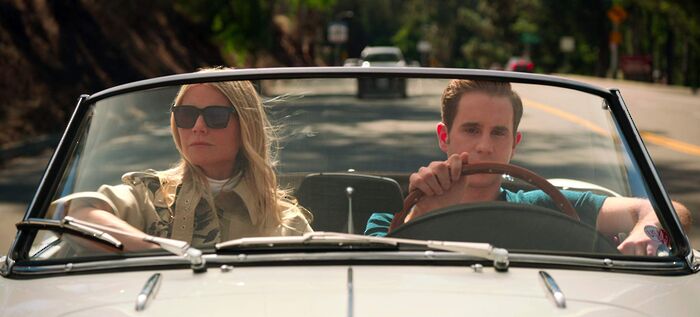Finding the horror in my home town
Columnist Emily Sandercock explores how her Pennsylvania home has been (mis)represented on film

I was almost 18 by the time I first left my home town for more than a few days. I had spent years planning to leave, so I was surprised by the intensity of the homesickness I felt as soon as I was gone.
When especially sad, I retreated to my room, where I searched out movies and TV shows that took place in and around my home town. During those first weeks away from home, I thought more than ever before about what it means to be ‘from’ a place. It wasn’t something that I had, up to that point, considered in any depth.
Most of the time, when I told people where I was from, they had never heard of the place. But occasionally they had, and I wondered about their perception of it, especially in relation to me. My hometown was suddenly a part of my identity, in a way that it was not while I was living there.
Film and TV helped me work out how my hometown might look to the rest of the world. I come from Scranton, Pennsylvania, which has a media presence somewhat out of proportion to its small size. Two views of Scranton predominate there. In the first, Scranton itself is the joke, though usually it is a fond and well-meaning one. This is the case on the American version of The Office, and in a segment of John Oliver’s show that features Scranton in a highlight reel of callers to our local news station obsessing over the miniature train that runs in the background of the weather reports.
“My home town was suddenly a part of my identity”
Scranton has also been mentioned on Saturday Night Live. During the 2008 US election, a skit on the show had Jason Sudeikis as Joe Biden tell an audience that he comes from Scranton, “the absolute worst place on earth”. The joke is mostly about Biden struggling to seem humble, not so much about Scranton specifically. However, the underlying attitude of these jokes sometimes enters troubling territory.
It does so in this New York Times article, in which two writers visit Scranton to marvel at what they represent as its uneducated and politically ignorant residents. The reporters sympathize with the people of Scranton, but also condescend to them. Here, Scrantonians do not understand their importance to the coming presidential election as they do not follow politics. The reporters praise this as an antidote to political polarisation, but seem to see what they want to see. According to their own numbers, most people they interviewed said that they were “politically engaged,” at least to some degree.
The other kinds of media in which Scranton appears follows the same elements – a declining rust-belt city, years behind the rest of the country – in a darker direction. Blue Valentine, for instance, sets the breakup of a marriage in a neighboring town comprising little more than nursing homes and old motels.
The horror movie Silent Hill was inspired by Centralia, Pennsylvania, another town in the region. A mine fire that broke out there in 1962 has been burning underground ever since, so that smoke issues regularly from cracks in the street, sometimes collapsing them, and a population of around 1,000 people in the 1960s has dwindled into the single digits.
None of these representations perfectly captures my hometown. Then again, neither do my memories, clouded by nostalgia and my own experiences, which can’t reflect those of everyone in the region. I think the mixture of comedy and darkness is fitting though, and together produces something close to a true portrayal of the region; although, one that does make Scranton look more different from the rest of the world than it really is.
Most of the shows and films represent it well enough that watching them can relieve my now occasional, but still intense, homesickness.
 News / Clare Hall spent over £500k opposing busway 24 December 2025
News / Clare Hall spent over £500k opposing busway 24 December 2025 Comment / The ‘class’ of Cambridge24 December 2025
Comment / The ‘class’ of Cambridge24 December 2025 News / Caius mourns its tree-mendous loss23 December 2025
News / Caius mourns its tree-mendous loss23 December 2025 Comment / Yes, I’m brown – but I have more important things to say22 December 2025
Comment / Yes, I’m brown – but I have more important things to say22 December 2025 News / Girton JCR publishes open letter expressing solidarity with Palestine25 December 2025
News / Girton JCR publishes open letter expressing solidarity with Palestine25 December 2025










